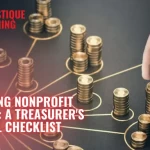Managing grants and donor-funded projects requires a comprehensive approach to ensure successful implementation and accountability. A thorough understanding of the donor's requirements and expectations is crucial at the outset.
This involves meticulously reviewing the grant agreement, project proposal, and any specific guidelines the funding entity provides. Effective communication with donors is essential throughout the project, involving regular updates, progress reports, and transparent financial documentation.
Budget management is a critical component, necessitating the establishment of robust financial controls to track expenditures, monitor variances, and ensure compliance with budgetary constraints. Project managers must also proactively address potential risks and challenges, implementing mitigation strategies to safeguard project objectives. Stakeholder engagement is another key aspect, involving coordination with partners, beneficiaries, and local communities to foster collaboration and meet project goals.
Monitoring and evaluation mechanisms should be in place to assess the project's impact and demonstrate accountability to the donor and other stakeholders. As a grant manager, it’s essential for you to have a combination of these skills and understand the key protocols involved in creating a successful bid, managing the budget, and achieving a positive outcome for all stakeholders.
Upon completion of this course, participants will be able to:
- Gain insight into the essential terms and conditions of grant aid for donor-funded projects.
- Adhere to the terms and conditions specified by donors.
- Compile necessary documentation, ensure proper procurement of goods and services, and fulfil financial reporting obligations.
- Oversee the management of projects funded by multiple donors.
- Review tools for effective administration.
- Create and oversee budgets allocated by donors.
- Generate a financial report for donors that aligns with the project's narrative report.
- Outline the stages in the grant management cycle and specify crucial responsibilities and routines for successful grant administration.
- Identify the criteria for concluding a donor grant.
- Confidently manage relationships with donors, head office, and implementing partners.
- Recognise the importance of close collaboration between finance and program staff for successful grant management.
This course is designed for anyone responsible for anyone responsible for managing a project funded by a grant or a donor. It would be most beneficial for:
- Business Owners
- Financial Directors
- Chief Financial Officers
- Finance Managers
- Procurement Managers
- Administrators
- Project Managers
- Auditors
- Data Analysts
- Budget Accountants
- Chief Accountants
- Credit Controllers
This course uses a variety of adult learning styles to aid full understanding and comprehension. Participants will review trainer-led presentations to learn how to write a successful grant proposal. They will also undergo role-playing activities to communicate and negotiate with stakeholders to secure budgeting for donor projects.
They will review multiple proposal templates and understand what’s required to receive funding. They will then work through interactive training methods to discuss how to manage the budget and provide proof of concept throughout the project to maintain funding. They will then present their findings to an active audience to show how their method of budgeting would benefit the project and achieve a return on investment.
Day 5 of each course is reserved for a Q&A session, which may occur off-site. For 10-day courses, this also applies to day 10
Section 1 : Understanding the Grant Budget & Expectations
- Developing a comprehensive understanding of grant budgets and expectations.
- Exploring the key components of grant budgets.
- Funding criteria and eligibility requirements.
- Identifying common pitfalls in grant budgeting.
Section 2: Developing a Successful Project Proposal
- Project goals with grant funding objectives.
- Creating realistic budget projections and cost estimates.
- Understanding reporting and accountability in grant-funded projects.
- Financial documentation and compliance.
- Building effective communication strategies with funding agencies.
- Financial literacy for successful grant applications.
Section 3: Budget Management
- Building skills in financial analysis and resource allocation within the donor context.
- Communication and negotiation skills for budget-related discussions with donors.
- Aligning project objectives with budgetary constraints and donor expectations.
- Developing effective budgeting strategies to enhance project sustainability.
Section 4: Communication with Stakeholders
- Building a communication plan that aligns with project objectives and donor requirements.
- Enhancing storytelling techniques to convey project impact and outcomes to donors.
- Addressing donor inquiries and concerns promptly and professionally.
- Utilising technology and platforms for efficient and timely donor communication.
- Establishing and maintaining positive relationships with donors throughout the project lifecycle.
- Developing skills in tailoring communication to different donor preferences and expectations.
Section 5: Ensuring Compliance & Auditing
- Navigating challenges and mitigating risks in donor communication.
- Ethical considerations in the realm of compliance auditing.
- Continuous improvement measures based on insights derived from audit outcomes.
- Regulatory frameworks and standards related to project compliance.
- Performing thorough compliance audits.
- Overcoming typical challenges and avoiding common pitfalls in the audit process.
Section 6: Monitoring & Evaluation
- Mechanisms for stakeholder engagement and feedback in the evaluation process.
- Frameworks for the timely and transparent reporting of evaluation results.
- Impact assessments to measure the long-term effects of donor-funded initiatives.
- Assessing the effectiveness of project interventions through rigorous evaluation methods.
Upon successful completion of this training course, delegates will be awarded a Holistique Training Certificate of Completion. For those who attend and complete the online training course, a Holistique Training e-Certificate will be provided.
Holistique Training Certificates are accredited by the British Assessment Council (BAC) and The CPD Certification Service (CPD), and are certified under ISO 9001, ISO 21001, and ISO 29993 standards.
CPD credits for this course are granted by our Certificates and will be reflected on the Holistique Training Certificate of Completion. In accordance with the standards of The CPD Certification Service, one CPD credit is awarded per hour of course attendance. A maximum of 50 CPD credits can be claimed for any single course we currently offer.
- Course Code PO4-116
- Course Format Classroom, Online,
- Duration 5 days














